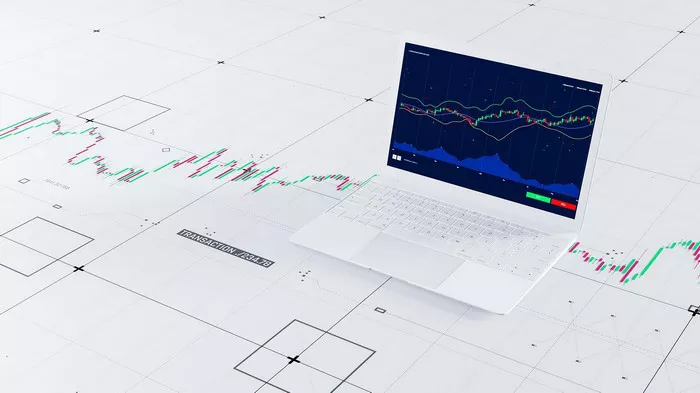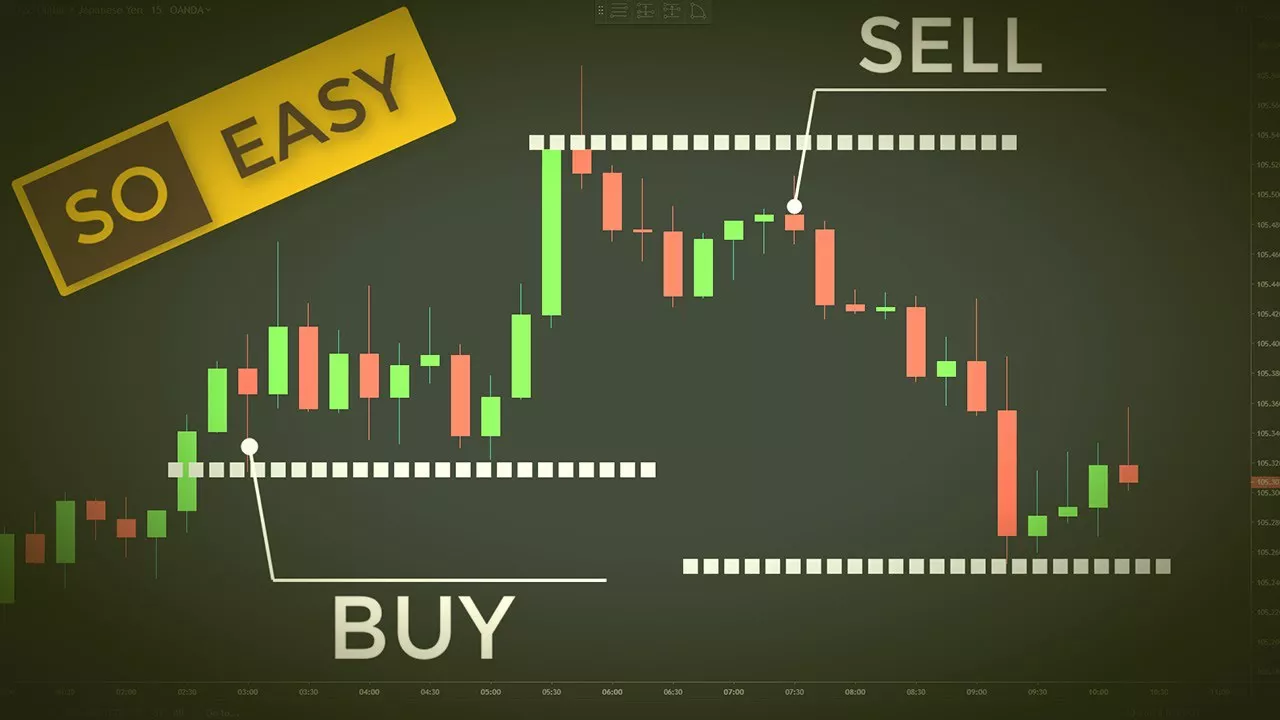Forex trading is a popular financial market where individuals and institutions exchange currencies. The forex market is known for its high liquidity and volatility, which provide opportunities for traders to profit. One of the most common strategies used by short-term traders is scalping.
Scalping in forex involves making numerous trades in a very short period, often holding positions for just seconds or minutes. The goal is to profit from small price movements. While scalping can be profitable, it also comes with risks and challenges. In this article, we will explore what scalping is, how it works, its benefits and risks, and the strategies that traders use.
What Is Scalping in Forex?
Scalping is a short-term trading strategy that involves making multiple trades throughout the day to capitalize on small price movements. Traders who employ this strategy, known as scalpers, aim to take advantage of tiny price fluctuations, often holding positions for just a few seconds to minutes.
The goal of scalping is to generate profits by executing many trades with small gains that add up over time. Since the price movements in the forex market are typically measured in pips (the smallest unit of price change), scalpers focus on capturing these small movements to make profits.
Scalping is often contrasted with longer-term strategies like swing trading or position trading, where traders hold positions for hours, days, or even weeks. Scalpers, on the other hand, tend to make dozens or even hundreds of trades per day, trying to profit from minor changes in currency prices.
How Does Scalping Work?
Scalping works by exploiting small price movements within a short period. Forex scalpers aim to buy when they anticipate a slight price increase or sell when they expect a small decrease. Since the price movements they target are small, scalpers usually use high leverage to amplify their profits. High leverage means that traders can control a larger position with a smaller amount of capital, increasing both the potential for profit and the risk of loss.
Key Characteristics of Scalping
Short Holding Period: Scalpers typically hold trades for seconds or minutes. The focus is on quick entry and exit to capture small price movements.
Frequent Trades: Scalpers execute many trades during the day. These trades are usually very small in terms of profit per trade, but the volume can make up for it.
Small Profits Per Trade: A scalper aims for profits of just a few pips per trade. The idea is to make many small profits that add up over time.
Leverage: Scalpers often use high leverage to increase their position sizes and amplify their profits. However, leverage also increases the risk.
Tight Spreads: Scalpers often trade currency pairs with tight spreads, as a narrow spread reduces transaction costs. This allows them to profit from smaller price movements.
Benefits of Scalping in Forex
Scalping offers several advantages for traders who prefer short-term trading strategies. Let’s look at some of the key benefits of scalping in forex:
1. Quick Profits
The most obvious benefit of scalping is the ability to make quick profits. Since trades are executed quickly and frequently, scalpers can capitalize on even small price movements. With the right strategy, scalpers can make several profitable trades within a single day, leading to quick returns.
2. Lower Exposure to Market Risk
Since scalpers hold positions for very short periods, their exposure to market risk is minimized. This means they are less affected by longer-term trends or market news. For instance, while a swing trader might experience significant losses during a major news event, a scalper might already be out of the market before the event causes volatility.
3. No Need for Long-Term Market Analysis
Unlike other trading strategies that require in-depth technical or fundamental analysis, scalping relies primarily on short-term price movements and technical indicators. This means that scalpers do not need to spend hours analyzing the broader market or waiting for long-term trends to develop.
4. Highly Liquid Markets
Scalping works best in highly liquid markets. The forex market is one of the most liquid markets in the world, with a daily trading volume of over $6 trillion. This liquidity ensures that scalpers can enter and exit trades quickly without having to worry about slippage (the difference between the expected price and the actual price).
Risks of Scalping in Forex
While scalping offers numerous benefits, it also comes with several risks and challenges. It is important for traders to understand these risks before committing to a scalping strategy.
1. High Transaction Costs
Scalpers make numerous trades per day, and each trade involves transaction costs such as spreads and commissions. Since these costs can add up quickly, they can eat into the small profits that scalpers make from each trade. Therefore, it is essential for scalpers to minimize transaction costs by choosing brokers with low spreads and commissions.
2. High Leverage Risk
Many scalpers use high leverage to amplify their profits. While leverage can increase returns, it also magnifies the risk of losses. Even a small price movement against a scalper’s position can lead to significant losses if leverage is used excessively.
3. Emotional Stress
Scalping requires a high level of focus and concentration. Since trades are executed rapidly, scalpers need to make quick decisions and react to changing market conditions almost instantly. This can be mentally and emotionally exhausting, leading to stress and burnout.
4. Market Noise
Scalpers rely on small price movements, and the forex market is full of noise, meaning there are frequent, random fluctuations that can mislead traders. These fluctuations can make it difficult to predict the direction of price movements accurately, leading to false signals and losses.
5. Requires a Significant Amount of Time
Although scalping is a short-term strategy, it requires constant monitoring of the market. A successful scalper must be able to watch the market for hours at a time, waiting for opportunities to enter and exit trades. This makes scalping a time-intensive strategy, which may not be suitable for individuals with limited time to dedicate to trading.
Scalping Strategies in Forex
Successful scalping requires the use of specific strategies that can help traders make quick decisions and capitalize on small price movements. Here are some popular scalping strategies used by forex traders:
1. Momentum Trading
Momentum trading is one of the most common scalping strategies. In this strategy, scalpers look for currencies that are showing strong momentum in one direction. They enter trades when they believe the momentum will continue in the same direction for a short time. Momentum can be identified using technical indicators like Relative Strength Index (RSI) or Moving Average Convergence Divergence (MACD).
2. Range Trading
Range trading is another popular scalping strategy. This strategy works well when the market is trading within a defined range, with clear support and resistance levels. Scalpers buy near the support level and sell near the resistance level. This strategy works best in markets where price movements are predictable and stable.
3. Breakout Scalping
Breakout scalping involves entering a trade as soon as the price breaks through a significant support or resistance level. The idea behind this strategy is that once the price breaks out, it will continue to move in the direction of the breakout for a short period. Scalpers using this strategy look for small, quick profits during the breakout.
4. News Scalping
Some scalpers focus on trading during economic news releases, such as interest rate decisions, GDP reports, or employment data. The forex market often experiences volatility around major news releases, which can create opportunities for quick profits. News scalping requires a deep understanding of how news events affect currency prices and the ability to react quickly to changing market conditions.
How to Get Started with Scalping in Forex
If you are interested in starting forex scalping, here are some essential steps to get started:
Choose a Reliable Broker: It is crucial to select a broker that offers low spreads, high leverage, and fast execution speeds. Look for brokers that provide scalping-friendly accounts.
Select the Right Currency Pairs: Scalpers usually trade highly liquid currency pairs with tight spreads, such as EUR/USD, GBP/USD, and USD/JPY.
Use Technical Indicators: Scalpers rely on technical indicators to identify entry and exit points. Learn how to use indicators like moving averages, RSI, MACD, and Bollinger Bands to improve your trading decisions.
Practice with a Demo Account: Before trading with real money, practice your scalping strategy on a demo account. This will help you get a feel for the market and develop your trading skills without risking your capital.
Manage Risk: Since scalping involves high leverage and numerous trades, risk management is essential. Use stop-loss orders to protect your positions and manage your exposure.
Conclusion
Scalping is a fast-paced and high-risk trading strategy that involves making quick trades to capitalize on small price movements. It offers the potential for quick profits, but it also comes with significant risks, including high transaction costs, emotional stress, and the need for constant market monitoring. Successful scalpers need to employ specific strategies, manage risk effectively, and be highly disciplined.
If you’re new to forex or short-term trading, scalping may not be the best strategy to start with. However, for experienced traders who can handle the intensity and risks, scalping can be a profitable way to take advantage of the volatility in the forex market.
Related topics:
































